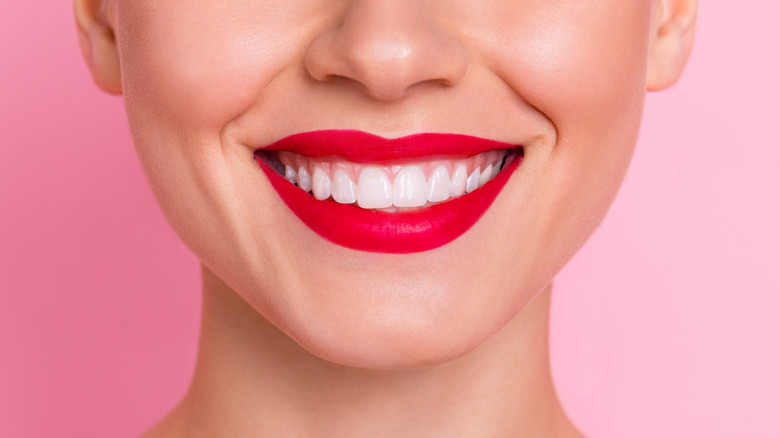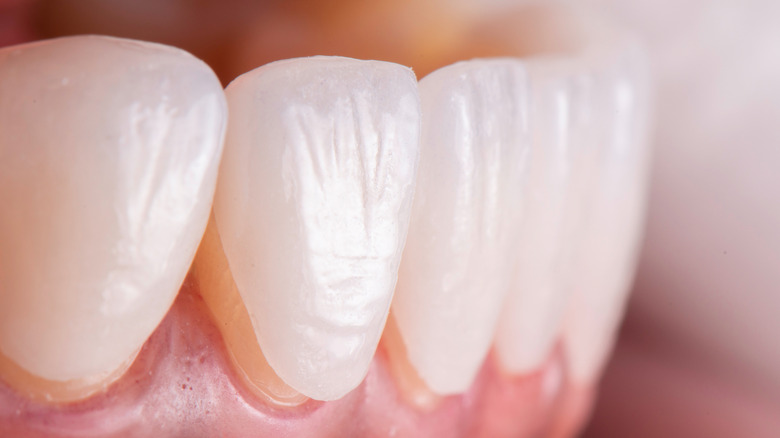What Really Happens To Your Teeth When You Get Veneers
Our smiles are powerful enough to make a life changing first impression. It could be the first thing that caught your partners eye. Or it could have helped you exude the confidence needed to land your dream job. Knowing the power of a smile makes us want to make sure our grins are looking their very best at all times. And in order to do this, sometimes we have to invest more into our teeth than simply brushing after meals and flossing. Most of us have heard of the magic of Invisalign "braces," but veneers aren't quite as mainstream.
According to the American Dental Association, veneers are custom-made shells that have been personalized to you from a model made by your dentist. They are typically thin, cover only the front side of the teeth, and are often used to correct teeth that have been stained, chipped, decayed, or are crooked.
In addition to cosmetic corrections, Colgate claims that veneers are an easy way to whiten your smile and help replace damaged enamel. Damaged enamel is often caused by aggressive brushing, acidic food and drink consumption, or from stomach disruptions such as acid reflux disease. Unfortunately, damaged enamel does not naturally repair itself. Although veneers are viewed as a treatment and replace the lost enamel that protects the tooth.
Veneers are permanent
Perhaps the most important thing to remember is that veneers are permanent. As cosmetic dentist Marc Lowenberg told PopSugar, a little less than 15% of the tooth structure is removed during the procedure in which veneers are permanently placed on the tooth, so you can't take them on and off.
And just because your teeth are covered by the veneer, it doesn't mean you can skip the usual upkeep. Dr. Charles Sutera, a board-certified dental anesthesiologist and aesthetic smile specialist, told the publication. "The veneers are susceptible to decay and periodontal disease like that of natural teeth. It is recommended to brush at least twice per day with fluoride toothpaste, floss at least once per day, and see a dentist every six months for professional maintenance," he explained. Sutera went on to say that your teeth might be extra sensitive to cold for a few weeks after the procedure.
If a set of veneers sounds like just what your smile needs, you can book a consultation with your dentist to find out if you're a good candidate for the procedure. In the meantime, keep flashing your smile to make some potentially life-changing first impressions.


